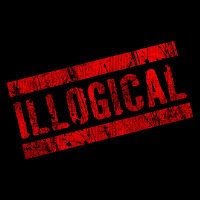Federal appeals court voids Proposition 8; same-sex "marriage" issue to SCOTUS
A Federal Court of Appeals has ruled 2-to-1 that California's Proposition 8, outlawing gay "marriage," is unconstitutional.
The ruling fairly summarizes the case for re-defining the most basic unit of human society in language which makes the radical- and frankly bizarre- nature of that argument clear:
Although the Constitution permits communities to enact most laws they believe to be desirable, it requires that there be at least a legitimate reason for the passage of a law that treats different classes of people differently. There was no such reason that Proposition 8 could have been enacted... Proposition 8 serves no purpose, and has no effect, other than to lessen the status and human dignity of gays and lesbians in California, and to officially reclassify their relationships and families as inferior to those of opposite-sex couples. The Constitution simply does not allow for laws of this sort.”Judge Randy Smith dissented from the decision, which seems clearly to embody the logical fallacy petitio principii, also known as "begging the question." As Judge Smith noted, it is by no means clear that Western society has reserved marriage for couples of the same gender solely to "lessen the status and dignity" of gays and lesbians. Gay marriages cannot produce offspring by natural means- one of the chief purposes for the establsihment of the institution of marriage- and numerous studies have established deficits in the adult behavior of children raised in the absence of parents of each gender (among them, a tendency for girls growing up in homes lacking a male parent to have difficulty forming satisfactory relationships with men as adults). Both the relative lack of value placed on monogamy among male homosexuals and the increasing rarity of "marriage" among them as time goes on in jurisdictions where it has become legal creates a question as to whether the demand for gay "marriage" in that population might not have more to do with promoting acceptance of homosexual behavior as a social norm than with righting an injustice. And there can be little doubt that, at a time when the institution of marriage is already under considerable stress, the extension of its boundaries to include an entire population for which it does not necessarily suggest monogamy would place a strain on the institution which it is very much in the interest of society to avoid.
There are, of course, other arguments to be raised against changing the institution of marriage which also contemplate things more worthy than making gays and lesbians miserable. But if one begins by dogmatically assuming that no such reasons can possibly exist, it is easy to see how one might arrive at the conclusion the appeals court has arrived at. Better, perhaps, to impartially examine the validity of that assumption before basing law on it!
In any event, supporters of Proposition 8 promise that the ruling will be appealed to the U.S. Supreme Court, where a decision will be rendered which will either legalize gay "marriage" nationally or establish the fallacy of the California court's "reasoning" once and for all. The latter will not, of course, prevent state courts from abusing their power by amending state constitutions by fiat in order to achieve social ends they consider desirable, but it will at least permit the citizens of the several states to insist on something more in keeping with what those constitutions themselves contemplated in establishing a judiciary.
HT: Drudge
ADDENDUM: Apparently I erred in basing my critique of the decision on an initial news article. The real issue, it seems, is that California had once permitted gay marriage (a state of affairs imposed upon it by fiat of an activist court, as is the case here in Iowa). The court ruled that, since California already has civil unions, the only reason Proposition 8 could have had for denying the name "marriage" to people of the same sex was to be mean to gay people.
Never mind the fact that monogamy is generally not an expectation in even "committed relationships" among gay men- so that extending the legal category "marriage" to that population would undermine the already tenuous status of martial monogamy in a culture in which marriage marriage vows are becoming less and less binding-and that there are no grounds in common law and precious few in precident for calling any relationship not between one man and one woman "marriage."
In other words, the California decision rests upon even shakier logic than I thought. Incidentally, the U.S. Supreme Court has already ruled that states have a right to define marriage as between one man and one woman, and I have serious doubts that the non sequitur promulgated by the Court of Appeals will stand when SCOTUS reviews it.



Comments